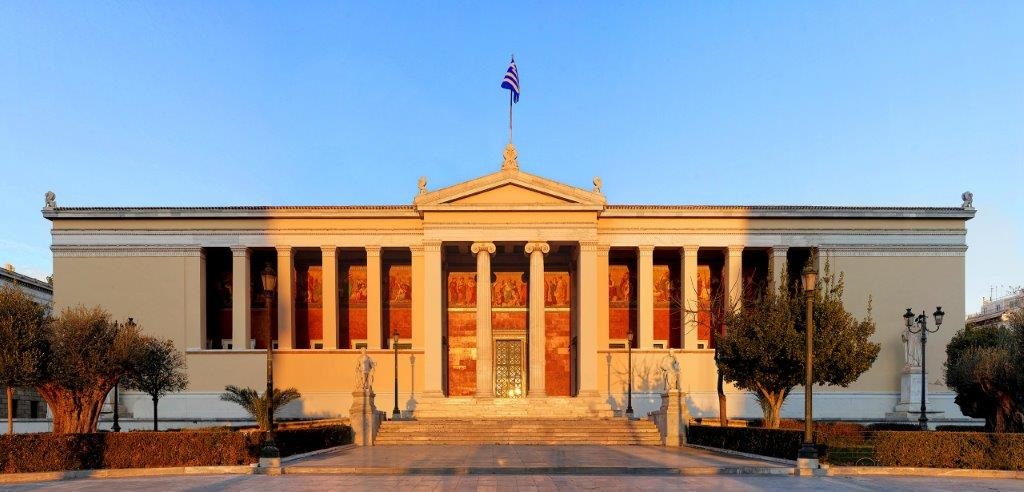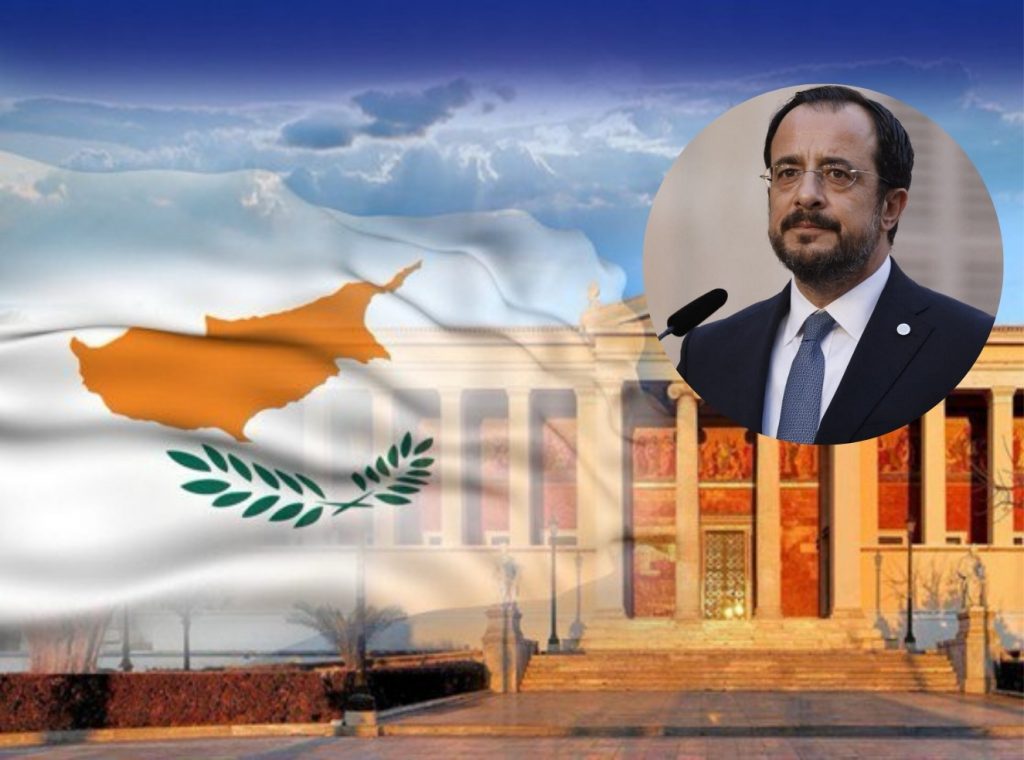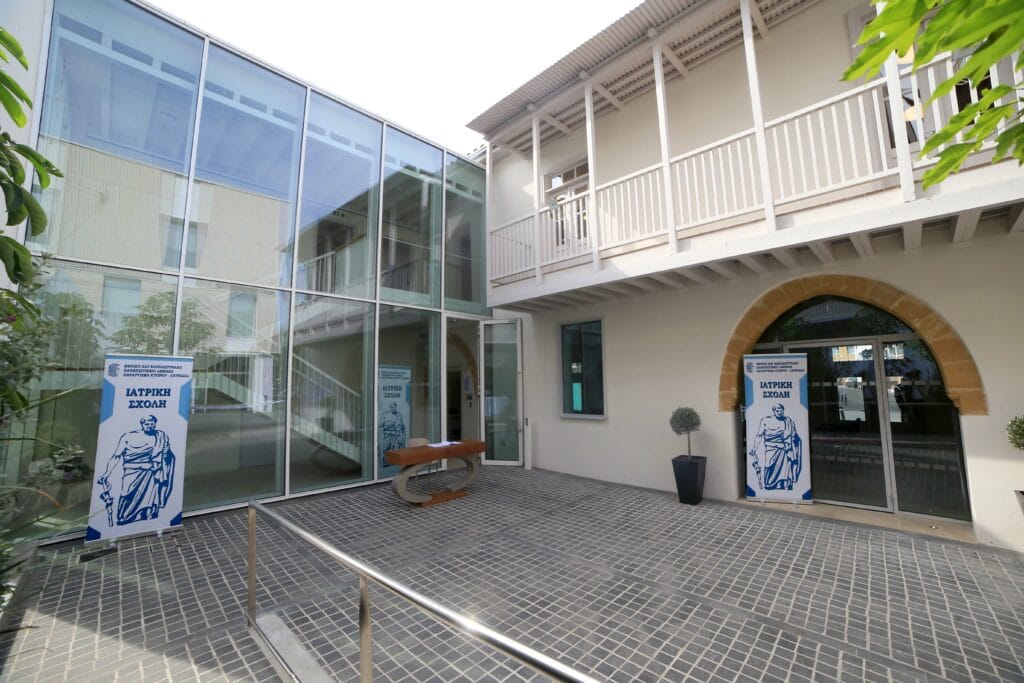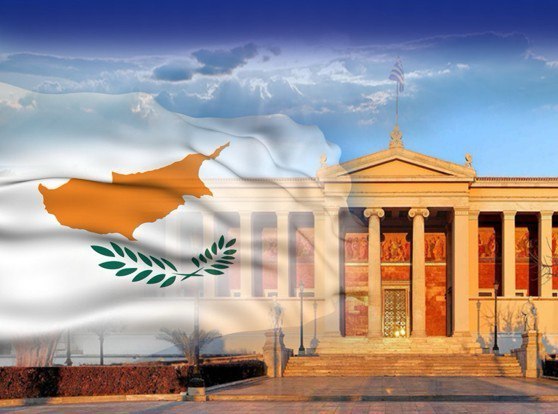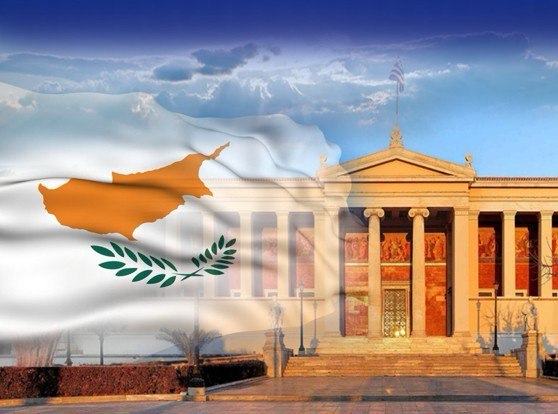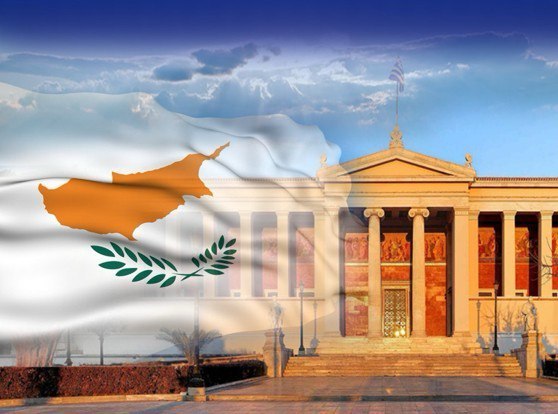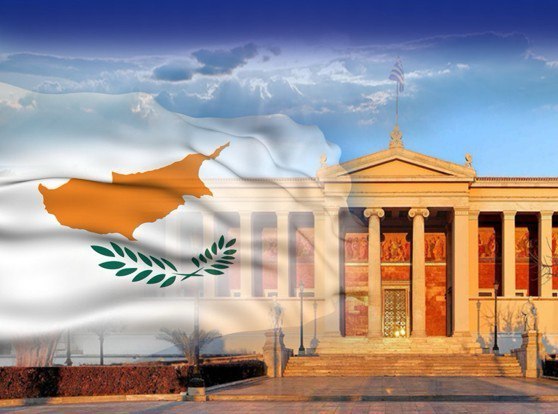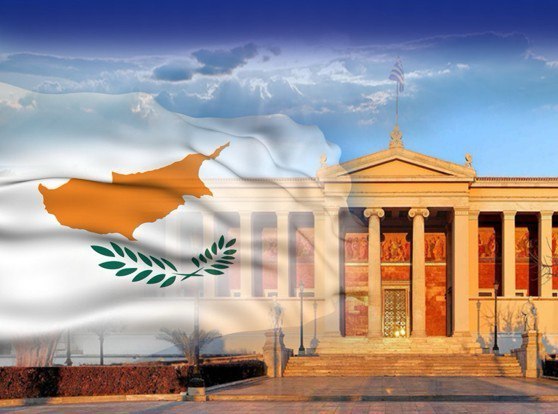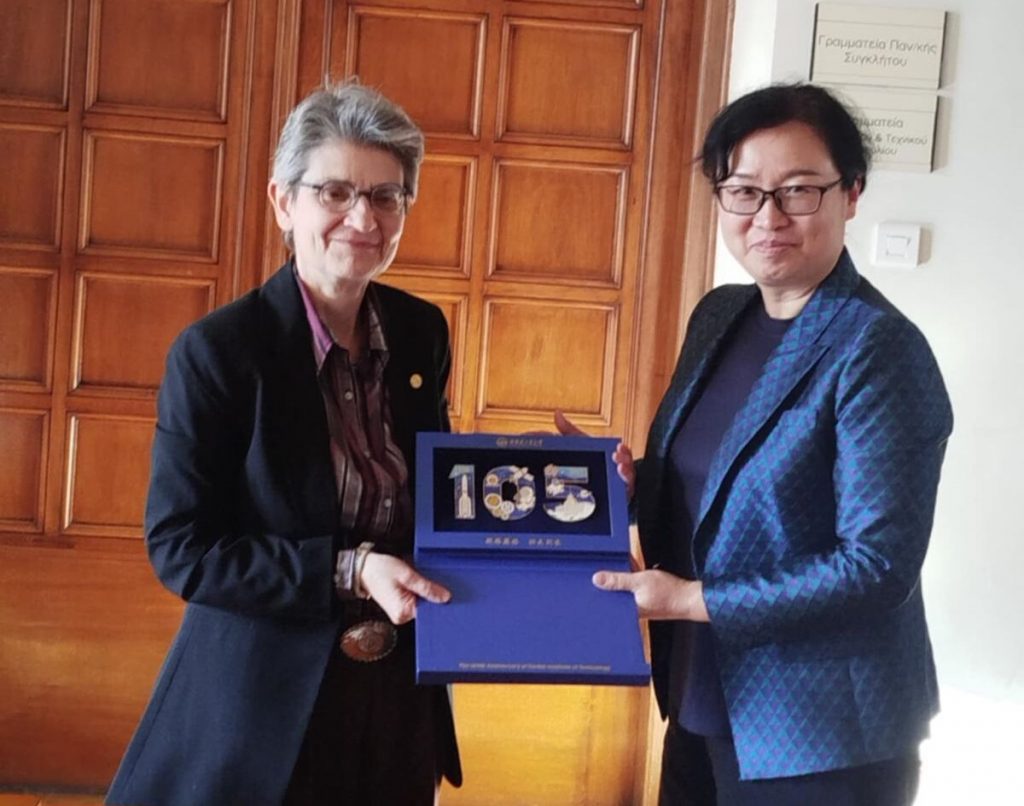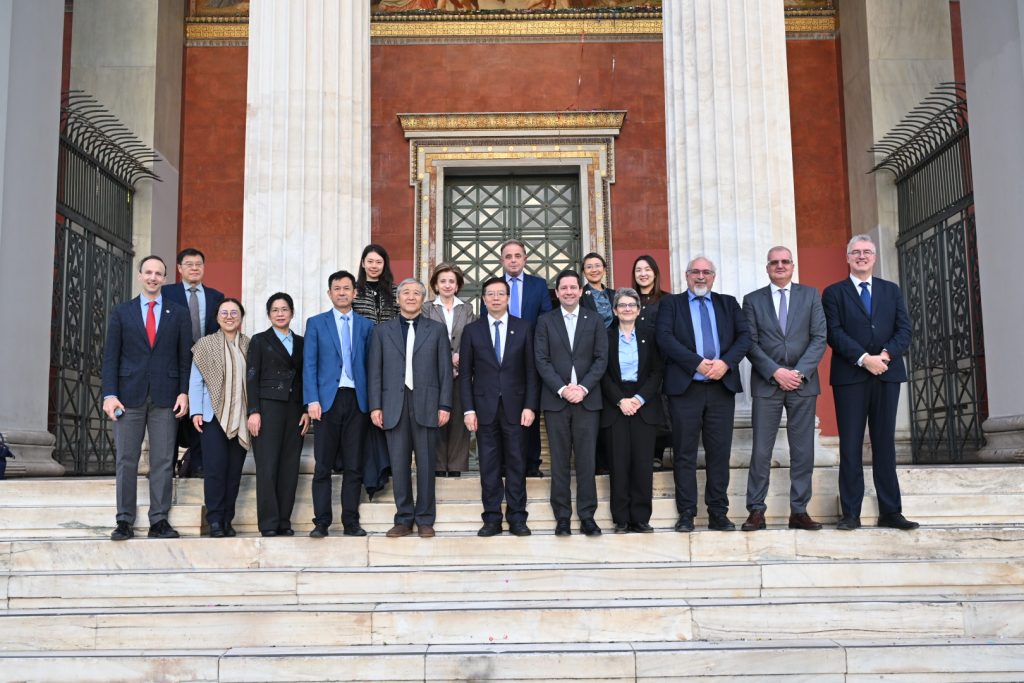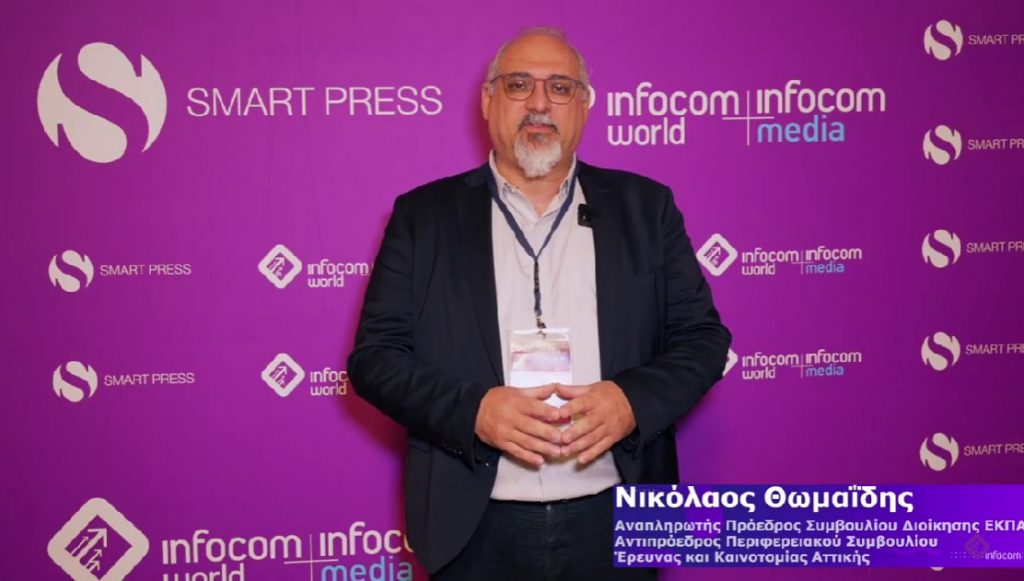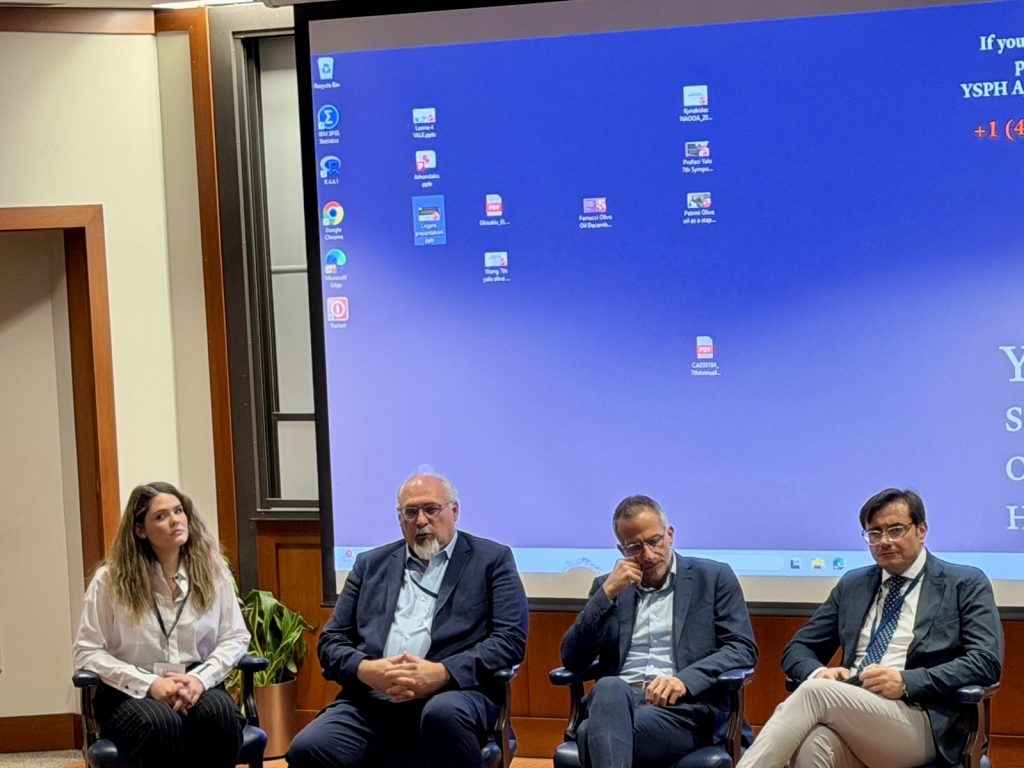The Extroversion and International Orientation is one of the strategic objectives of NKUA according to its ten-year Strategic Development Plan (2019-2028), as defined by the Rector and Vice-Rectors in collaboration with the other institutional bodies of the University and the Committee of International Relations and European Educational Programmes. NKUA is committed to interdisciplinary collaboration, the faster development of best practices and methodologies for innovation and research, and the promotion of fundamental sciences, collaborative disciplines, and modern technological trends. Our Institution’s internationalization strategy aims to advance its educational, research, and social work and enhance its standing abroad.
NKUA devotes a considerable portion of human resources to supporting its international relations and bolstering the efforts of its academic community to raise the Institution’s global visibility. Through international cooperation agreements, NKUA faculty members can successfully work with their counterparts at other Universities to develop research collaborations and programmes for the benefit of the academic community, plan scientific gatherings (seminars, symposia, conferences, etc.), and participate in teaching activities or give lectures, all of which contribute to the spread of scientific knowledge. At the same time, through the Erasmus programme, many students, academics, and administrative staff from the partnering Institutions are admitted to NKUA for studies, internships, teaching, training, and research collaborations, and the number of outbound students and staff from NKUA is equally significant. During the past three years, NKUA has welcomed new partnerships, pilot study programmes with international students, and ambassadorial and foreign delegation visits.
· From the academic year 2020-2021 onwards, the School of Philosophy of NKUA offers the ‘BA Program in the Archaeology, History, and Literature of Ancient Greece’, the first ever English-taught Undergraduate Programme at a Greek University, while from the current academic year (2022-2023), an Undergraduate Programme in Medicine, entitled ‘Medical Degree in English’, is available to foreign nationals only.
· In addition, our University, to address student needs for specialized knowledge and qualifications at the national and international levels, offers 33 Postgraduate Programmes in a language other than Greek. Apart from the ones taught exclusively in a foreign language, our Institution provides several Postgraduate Programmes in a combination of Greek and English or French or German, or Italian. We also boast a host of international Joint Master’s Degree Programmes and several bilateral agreements with foreign Universities for Joint Doctoral Degrees (cotutelles).
· Currently, there are 95 international cooperation agreements between NKUA and equivalent Institutions—of a mainly public nature—from 28 countries worldwide, including special arrangements for student exchange or cooperation at the level of University Schools and Departments.
· The effort for the international promotion of our University and the constant pursuit of collaboration with equivalent Institutions abroad often leads to visits to the Propylaea building of NKUA by Ambassadors and Chargés d’Affaires of various countries to Greece, foreign government officials, as well as delegations of foreign Universities to explore further cooperation both at the level of bilateral agreements between NKUA and equivalent Institutions abroad and in the realm of joint research programmes. Over the last four years, NKUA has had formal visits from Ambassadors, Cultural Attachés, Ministers, and foreign University delegations from 28 nations, including numerous European countries and the United States. Some of these meetings resulted in the signing of new bilateral cooperation agreements.
· Also, in recent years, a model programme of study for Hellenists from China, and more specifically from the Beijing Foreign Studies University (BFSU), the Guangdong University of Foreign Studies (GDUFS), and the Tianjin Foreign Studies University (TFSU), has been made available by the School of Philosophy of NKUA as part of special cooperation agreements.
· Occasionally, foreign Universities may award grants to NKUA students helping them to pursue undergraduate or postgraduate studies abroad or to attend Summer Schools. Such policies are followed, for instance, by Hankuk University of Foreign Studies (South Korea), the University of Seoul (South Korea), and Keio University (Japan).
· We should also note that NKUA is among the 69 Universities from 44 countries participating in the Ryoichi Sasakawa Young Leaders Fellowship Fund (Sylff) programme. NKUA is the only Greek Higher Educational Institution participating—since as early as 1993—in this programme funded by the Nippon Foundation and administered by the Tokyo Foundation. Sylff fellowships are available to outstanding individuals with high potential for leadership pursuing postgraduate studies in the social sciences and humanities.
· NKUA is a founding member and actively participates in the following 3 University networks:
UNIMED (Mediterranean Universities Union) http://www.uni-med.net
UNICA (Network of Universities from the Capitals of Europe) http://www.unica-network.eu
BSEMAN (Black Sea and Eastern Mediterranean Academic Network) https://bseman.org/
It is also a member of the 7 international organizations, associations, and University networks listed below, all of which strive to promote international cooperation among their members:
IAU (International Association of Universities) http://www.iau-aiu.net
EUA (European University Association) http://www.eua.be
ΕΑΙΕ (European Association for International Education) http://www.eaie.org
UNEECC (University Network of the European Capitals of Culture) http://www.uneecc.org
IIE (Institute of International Education) http://www.iie.org
BUA (Balkan Universities Association) http://www.baunas.org
SUN (Silk-road Universities Network) http://www.sun-silkroadia.org/
Furthermore, various NKUA Schools, Departments, and faculty members actively participate in specialized international academic associations and networks.
Finally, NKUA has signed the Magna Charta Universitatum and the declaration of core values since 1988 and has established the three UNITWIN (University Twinning and Networking)/UNESCO Chairs listed below:
UNESCO Chair and Network on Sustainable Development Management and Education in the Mediterranean
UNESCO Chair in Adolescent Health Care
UNESCO Chair on Climate Diplomacy
· The contribution of the Erasmus programme to the internationalization of Higher Educational Institutions, including the NKUA, has been decisive. Since the programme’s inception, over 6,700 students from European Universities have studied at NKUA, while over 16,200 NKUA students have moved for studies and internships to Universities and host Institutions around Europe. Similarly, over 835 faculty members from NKUA have taken advantage of the programme’s mobility options to Universities abroad. The Erasmus+ International Mobility action has launched a collaboration between European Universities and Universities from all continents, providing new opportunities for European Institutions to internationalize through student and staff exchanges with equivalent Institutions around the globe.
· Over the past four years (2019-2022), the total funding for NKUA’s mobility to and from European and non-European countries amounted to 10,771,838 euros. During the same time frame, there were over 3,400 outbound students and over 1,550 incoming ones.Concerning student mobility, of particular interest is the increasing number of incoming students for studies and internships. Indeed, the last four years (the COVID-19 pandemic-impacted academic year 2019-2020 omitted) have seen a considerable increase in incoming students to NKUA.
· Our University’s involvement in other Erasmus actions (KA2, KA3, J Monnet, and Sports) is equally extensive, with NKUA engaging in over 100 projects. Some 778 Erasmus+ bilateral collaboration agreements are in force, with 382 Institutions from 40 countries participating.
· As of the academic year 2022-2023, NKUA participates in a new action of the Erasmus+ programme. In fact, under the coordination of NKUA, a particular dynamic has developed regarding this action. We are talking here about the Blended Intensive Programmes (BIPs), which boast tremendous participation from students and faculty members, participation that extends not only to the NKUA-coordinated BIPs but mainly to those directed by CIVIS partnering Universities and other equivalent educational Institutions. There are now 58 BIPs in place, 9 of which are delivered by our University’s Departments, with 356 NKUA students participating.
NKUA in the European University CIVIS
NKUA is a founding member of CIVIS (est. 2019), a European University alliance selected in July 2022 by the EU for another 4 years of funding under the Erasmus+ programme and the European Universities Initiative. The 10 member Universities of CIVIS are the following: Aix-Marseille University (Aix-Marseille Université); the National and Kapodistrian University of Athens (Ethnikó ke Kapodistriakó Panepistímio Athinón); the Free University of Brussels (Université Libre de Bruxelles); the University of Bucharest (Universitatea din București); the Autonomous University of Madrid (Universidad Autónoma de Madrid); the Sapienza University of Rome (Sapienza Università di Roma); Stockholm University (Stockholms Universitet); the University of Tübingen (Eberhard Karls Universität Tübingen); and the Paris Lodron University of Salzburg (Paris Lodron Universität Salzburg). The University of Glasgow (UK) is an associate member of CIVIS, and—since October 2022—the University of Lausanne (Université de Lausanne) in Switzerland has joined the alliance. All members of CIVIS are top public Universities—Higher Educational and Research Institutions, active in a wide range of subjects and scientific fields; they combine excellence in teaching and research with a commitment to defend academic values and support the growing involvement of citizens.
The CIVIS alliance is implementing an ambitious vision to create a new type of University in 21st-century Europe, being at the forefront of the reform of Higher Education in the continent. CIVIS is building a modern Inter-university community with over 500,000 students and 68,000 staff members, of which 35,000 are academics and researchers. The alliance focuses on delivering high-quality instruction and learning while directly connecting the University with civil society, thus bringing about significant changes in research and innovation.
The emphasis is on five key areas—enormous challenges: Environment and Climate Change, Health, Democracy and Cultural Heritage, Sustainable and Inclusive Mobility, and Digital and Technological Transformation.
NKUA chairs CIVIS Hub 2 entitled ‘Society, Culture, Heritage’ with the University of Tübingen, Germany.
Our University held the Presidency of CIVIS from April to September 2022. During its Presidency, NKUA played its part in shaping the new type of University in Europe. Significant developments occurred during our University’s Presidency, including i. development and enhancement of joint programmes, ii. increase of joint doctoral degrees, iii. promotion of student and faculty mobility, iv. creation of joint Undergraduate and Postgraduate Programmes, and v. extension of cooperation between the University and the social partners. In May 2022, CIVIS organized in Athens, in coordination with NKUA, its biggest annual event, the ‘Global CIVIS Days’, with almost 300 participants. Also present in Athens for the occasion were distinguished European scientists, social partners, representatives from other European Universities alliances, and EU officials.
From the launch of CIVIS to the conclusion of its first three-year phase (CIVIS 1), NKUA undertook and successfully coordinated WP 6 (on mobility), the most crucial Work Package for the alliance’s development in its first phase of operation. During the academic year 2021-2022 (the last academic year of CIVIS 1), our University received 78 incoming students and sent 110 NKUA students abroad within the framework of the Erasmus+ Studies programme. In the same academic year, 250 NKUA students from all cycles moved to CIVIS member Universities to participate in jointly developed, short-term mobility educational activities (e.g., Summer Schools), putting NKUA in the top spot for outbound student mobility among the Universities of the alliance.
We should mention here in passing that NKUA fosters multilingualism. As a result, the Senate has authorized the inclusion of electives offered in foreign languages into Undergraduate Programmes of study.
Returning to CIVIS, it is important to note that no less than 200 educational actions for students, researchers, and administrative staff took place over the first three years of the alliance’s life, with the participation of 184 academics from NKUA and their counterparts in other member Universities. Within this framework, the alliance has adopted the ‘Cotutelle Agreement’ permitting the co-supervision of doctoral dissertations across CIVIS member Universities.
The European University CIVIS also bridges the gap between the academic world and civil society through its ten local Open Labs, one at each member University. Over 30 projects addressing local and global issues received support. With the help of 15 stakeholders-partners and NKUA teams of scientists, the CIVIS Local Council at NKUA, consisting of over 40 social partners, oversees the implementation of five projects of local interest.
Finally, CIVIS introduced the so-called Digital Campus to foster cooperation between member Universities and facilitate the intercultural experience. Among the new tools available are networking platforms for the academic community and researchers and the CIVIS Passport, a digital technology for recording all educational activities, seminars, and mobilities the student has attended to allow automatic identification.
The first—three-year—operational phase of the European University CIVIS was very successful, hence the July 2022 EU extension of its funding for four more years (i.e., CIVIS 2) under Erasmus+ and the European Universities Initiative.
Over the next four years, NKUA will play, by decision of the CIVIS Board of Rectors, a prominent role in the alliance, having undertaken Work Package 9 entitled ‘CIVIS Educational Offer: Bachelor and Master Level’. It will also coordinate with the Free University of Brussels and the University of Bucharest Work Package 13, entitled ‘Impact and Dissemination’. Finally, our University will participate in all Task Forces and Work Packages undertaken by other member Universities and continue to chair CIVIS Hub 2 entitled ‘Society, Culture, Heritage’ with the University of Tübingen.
To minimize delays in these critical activities, the Administration of NKUA must demonstrate continuity, stability, expertise, diligence, dedication, and inclusivity. Our University’s Schools and Departments have much to offer towards extroversion and internationalization. Therefore, to reliably guarantee the advancement of NKUA, the Central Administration of our country must provide them with consistent and equal support.
Thanos Dimopoulos
Rector of NKUA


